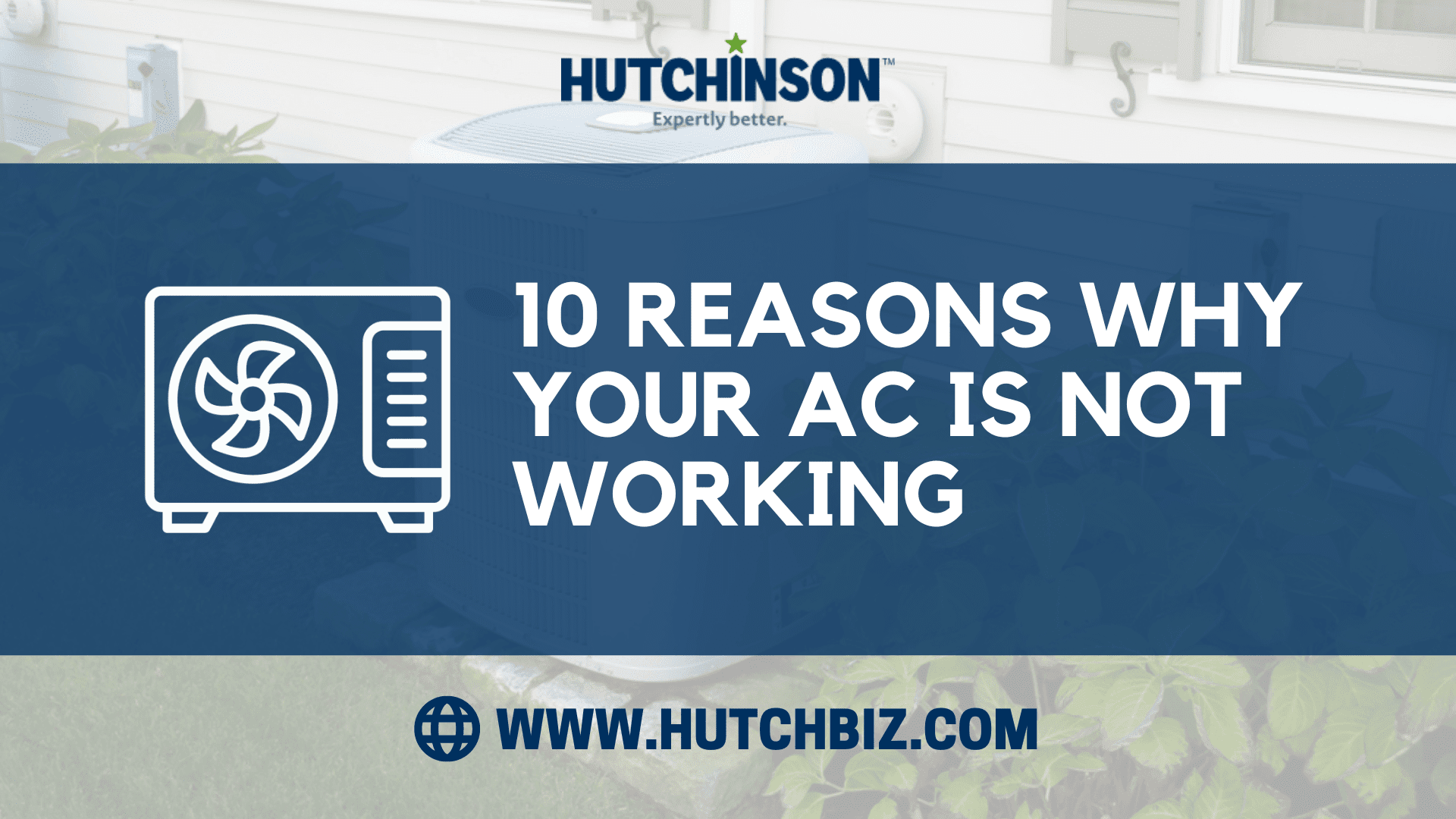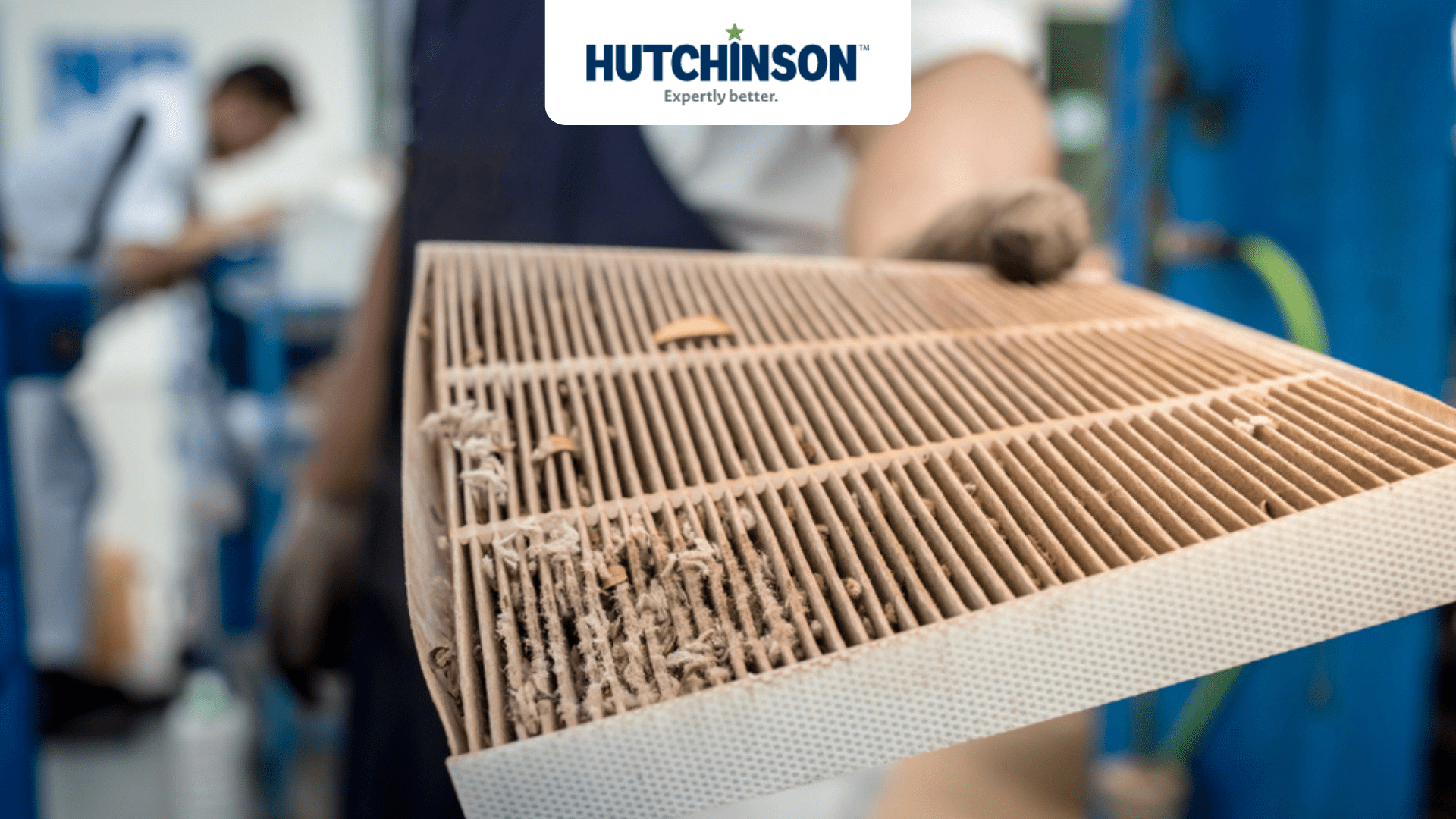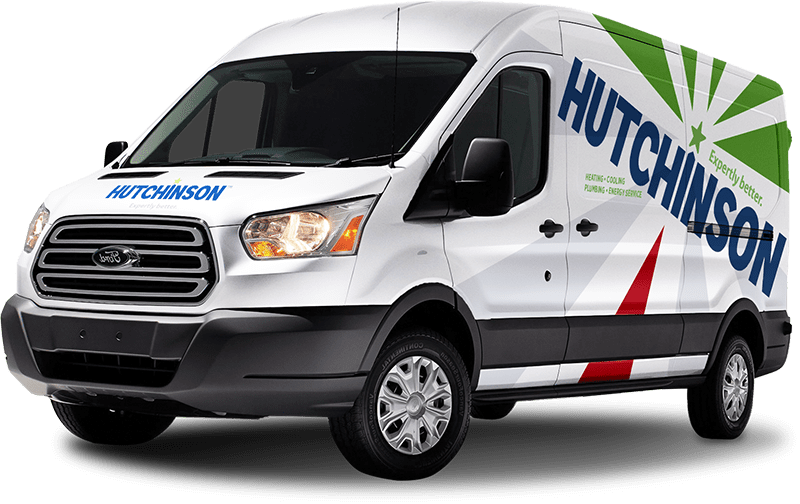
As summer approaches and temperatures rise, air conditioners become a primary source of relief for homeowners around New Jersey. However, air conditioners aren’t immune to problems, and when the AC is not working in the house, waiting for a repair can add discomfort to an already hot season.
Understanding why your AC isn’t working correctly can help you troubleshoot the problem and potentially avoid severe issues. The HVAC experts at Hutchinson’s can solve the problem of why your AC is not cooling. Here are ten reasons why your air conditioner is not working:
- Dirty Air Filter
- Thermostat Set Incorrectly
- Outdoor Condenser Unit is Blocked
- Damaged Heat Pump
- Frozen Evaporator Coil
- The Compressor Fails
- AC Capacitor is Failing
- Low Refrigerant
- AC Shut-off Switch
- The Circuit Breaker is Tripped
10 Things That Could Cause Your AC to Not Work
Nothing is worse than when the AC isn’t working in your house on a hot summer day. If you’re dealing with an AC fan that’s not working and are looking to troubleshoot the issue, there may be several causes. Let’s dig deeper into each of the reasons why an air conditioner may not be working:
1. Your Air Filter is Dirty

A dirty air filter can be a significant problem for your air conditioning system and is also a common cause of AC malfunctions. Over time, debris accumulates on the air filter, impeding airflow through the system.
This blockage can cause several problems, including short cycling, where your AC turns on and off in short bursts without completing an entire cooling cycle.
When air filters are blocked, your AC unit has to work harder, leading to higher energy bills and uneven cooling in your home. In severe cases, a dirty filter can cause your air conditioning system to stop working altogether.
Regularly changing your air filter can help prevent these issues and ensure your AC works efficiently. By scheduling routine maintenance and taking proactive steps to keep your air filter clean, you can save money while avoiding unnecessary stress caused by AC malfunctions.
2. The Thermostat Is Set Incorrectly
When your home feels warmer than usual, checking your thermostat settings before calling an HVAC technician is essential. Sometimes, the issue is as simple as the thermostat being set incorrectly. A common culprit is accidentally changing the temperature setting or switching it to heat or fan-only mode instead of cooling mode.
If the thermostat is set correctly, turn on the air conditioner and wait a few minutes to see if cool air blows out of the registers. If not, it’s time to check the air filter, which could be dirty and prevent normal airflow.
Regularly checking and adjusting your thermostat settings ensure that your air conditioning unit operates efficiently and cools your home to your desired temperature. In addition, proper thermostat management can help you save money on energy bills by avoiding unnecessary usage.
Contact the HVAC professionals at Hutchinson’s if you suspect a more severe issue with your HVAC system.
3. Outdoor Condenser Unit is Blocked
Careless outdoor landscaping and neglecting lawn care may contribute to a hot home. Shrubs, plants, or foliage debris can block the airflow surrounding the outdoor condenser unit. If the unit is covered in dirt or leaves, the heat transfer is blocked, and it has to work harder to cool, leading to possible system failure.
To prevent this issue, homeowners should ensure enough space around and on top of their outdoor units. Use a garden hose to remove any debris caught in the unit’s fins, particularly leaves and dirt during the rainy season and lawn clippings. One of the best practices is to allow for two to three feet of space between the unit, plants, and backyard structures.
Ensure there are five feet over its top for proper air circulation. By ensuring the outdoor condenser unit is unobstructed, homeowners can avoid unnecessary expenses in AC repairs and keep their homes cool during the hot summer months.
4. Damaged Heat Pump

If your home’s outdoor unit is a heat pump, it may be experiencing issues like an AC unit’s condenser. Heat pumps function as both heating and cooling systems with different components that allow them to function as such.
Common issues that involve heat pumps’ cooling functions include frozen coils, dirty or clogged coils, refrigerant leaks, compressor malfunctions, and more. If your heat pump system is not cooling correctly, check the thermostat settings, air filter, and condenser unit for any previously mentioned issues.
If these checks do not solve your cooling problem, it’s time to call your local HVAC repair technician at Hutchinson’s. They will help identify the issue and provide a solution to get your system back to working efficiently. Regular maintenance of your heat pump system can help you avoid these issues, keep your home comfortable in all seasons, and save you from unnecessary expenses on repairs.
5. Frozen Evaporator Coil
If you notice that your air conditioning system is not cooling your home effectively, it could be due to a frozen evaporator coil. It indicates that there might be a refrigerant leak somewhere in the system, causing it to work overtime to cool the air. If left unchecked, it can damage your AC unit severely.
To address this issue immediately, you should turn off your system and contact an AC repair consultant as soon as possible. Only professionals can assess the damage’s extent and provide appropriate solutions to fix the problem.
In addition to a refrigerant leak, other issues that can cause a frozen evaporator coil include dirty air filters, damaged blower motors, blocked ducts, and low refrigerant levels.
6. The Compressor Fails
Your air conditioner’s compressor compresses the refrigerant and circulates it through the system to cool your home effectively. If the compressor fails, it can cause several issues that affect the efficiency of your AC system. Here are a few signs that your compressor may have failed:
- Your system shakes when starting
- Warm air is blowing instead of cool air
- Your system trips the circuit breaker frequently
- Strange noises come from your system when it’s running
If you suspect that your compressor has failed, don’t panic. It doesn’t always mean the situation is dire and may not require a costly fix. However, if the unit frosts over, overheats, or cycles more frequently, this indicates a more severe problem.
Some less severe issues, like electrical or refrigerant problems or pollution in the system, can mimic compressor failure. If you experience any of these AC issues, the best option is to contact a professional technician to diagnose and fix any problems. They have the knowledge and expertise to identify further issues and give suggestions on how to avoid future problems.
7. AC Capacitor is Failing
Start and run capacitors are essential components that supply energy to the fan motor and power the air conditioning unit when needed. These small yet vital devices ensure the proper functioning of your AC system and prevent it from stalling.
When a capacitor starts to fail, you may hear a humming sound from your AC unit without it actually starting. That’s a sign that calling in an HVAC professional is time.
If your AC system is short-cycling, randomly shutting off, or delaying turning on, it could be due to a failing run capacitor. It can be a challenging problem for a homeowner to fix by themselves. In many cases, attempting to fix it makes the situation worse.
Capacitors can deteriorate over time due to prolonged use or exposure to harsh outdoor elements. Regular maintenance of your AC system can help prevent this issue, extend the life of your equipment, and optimize its performance.
In conclusion, a failing capacitor can significantly impact the operation of your air conditioning unit. If you experience these issues, contact an HVAC professional immediately for help and avoid attempting to fix the issue yourself.
8. Low Refrigerant

Your air conditioning system relies on refrigerants to function efficiently and effectively. The refrigerant starts as a cold liquid and evaporates on the coil located inside your home, absorbing heat from the air.
The resulting hot gas is then moved outside to the condenser, transferring the heat to the outside air and transforming the gas into a liquid. This process repeats itself to keep your home cool.
If your air conditioner is not cooling well, it could be due to low refrigerant levels. The amount of refrigerant must match the manufacturer’s specifications. There are two possible reasons for low levels of refrigerant. Either more refrigerant was needed when the system was installed, or there was a leak causing the refrigerant to escape.
If you have low refrigerant in your system, it’s likely that a leak is causing the issue. Just adding more refrigerant won’t solve the problem. You need to find the root cause of the problem to prevent needing a more costly repair.
Most AC systems use halogenated chlorofluorocarbons (HCFCs), such as R-22 or freon, as a refrigerant. These refrigerants are being phased out for environmental reasons, and ozone-safe hydrofluorocarbons (HFCs) have become the norm.
Regular maintenance will ensure your system’s refrigerant levels are correctly maintained, help avoid costly repairs, and minimize environmental impacts.
9. AC Shut-Off Switch
If your air conditioner fails to turn on, it could be due to the power supply to the indoor A/C unit and furnace. The furnace switch provides power to the indoor part of your HVAC system and can be why your air conditioner is not switching on. It’s essential to ensure that the furnace switch is in the “on” position.
People often overlook the furnace switch or accidentally turn it off since it looks like a regular light switch. But your air conditioner will not function correctly if it’s not turned on. If your AC fan is not working despite the thermostat’s settings, make sure to check the furnace switch before calling a professional.
The shut-off switch ensures the power supply to your indoor A/C unit and furnace, and it’s easy to turn it off accidentally. Checking and maintaining the furnace switch is essential to regular HVAC maintenance to prevent any potential AC malfunctions.
10. The Circuit Breaker is Tripped
If you’re having trouble getting your air conditioning system to turn on, it could be due to a tripped circuit breaker. Go to your breaker box and see if the breaker linked to your HVAC system has tripped.
If so, reset the breaker and see if your AC system turns on.
If a circuit is overloaded, the breaker might trip. If the breaker trips repeatedly, turn off other equipment that could contribute to the issue. To reset a tripped circuit breaker, follow these instructions:
Find your main circuit breaker to fix your air conditioner and flip it to the “on” position. Wait 30 seconds, then turn your AC back on. If it still doesn’t work, get professional help. Also, check if your lights flicker when you turn on any appliance. This means you might be using too much electricity and could overload the circuit. Consider limiting the number of appliances you use simultaneously.
If your AC system does not turn on after resetting the circuit breaker, avoid attempting to flip the switch again. It may indicate a hazardous electrical short that could ignite a fire. Moreover, if you reside in an older house with faulty or outdated electrical wiring, it could imply a more significant issue that necessitates the expertise of a professional.
Schedule An AC Check Up with Hutchinson
To avoid expensive bills in the summer, having your air conditioning system professionally serviced is essential. Even minor issues with your AC can cause it to work inefficiently, resulting in up to a 50% increase in your cooling expenses.
Don’t wait for the temperatures to rise before checking your system’s performance. Schedule an AC check-up with Hutchinson to ensure your system runs optimally and efficiently. Our trained HVAC technicians can assess and fix any issues with your system to ensure that it’s reliable and prepared for the summer heat.
We can help extend its lifespan and prevent costly repairs. Don’t let a poorly maintained AC system lead to high energy bills during the summer months. Contact Hutchinson today to ensure that your system is functioning at its best.

